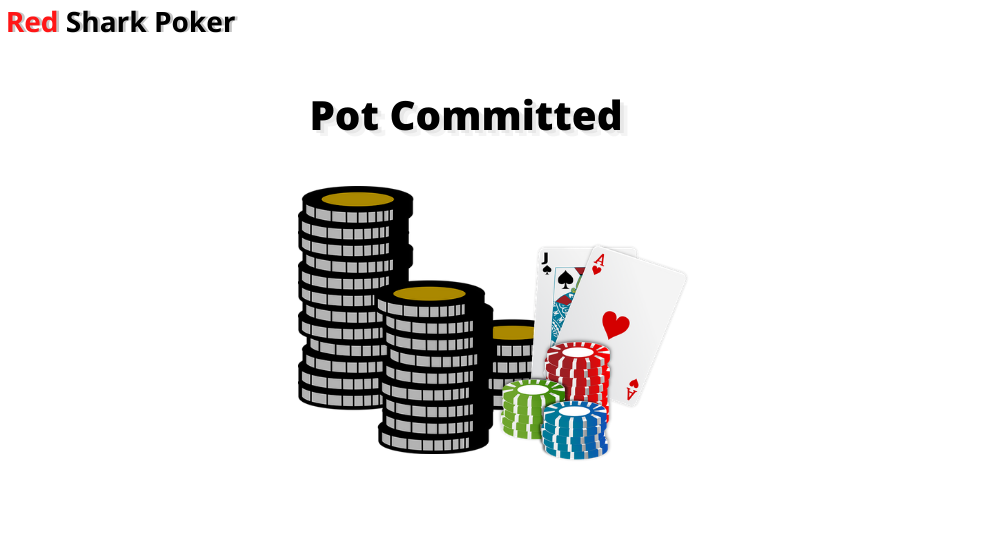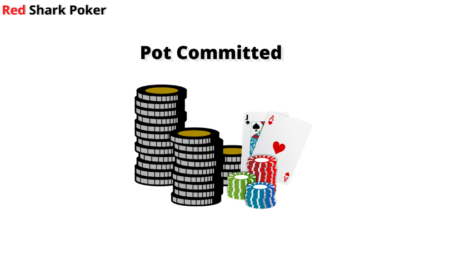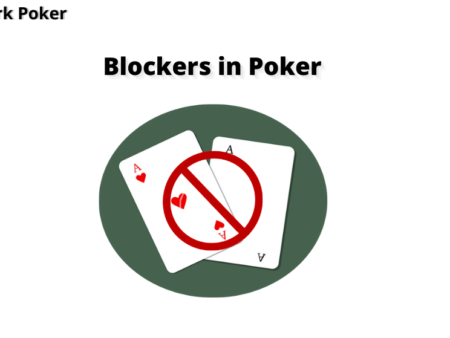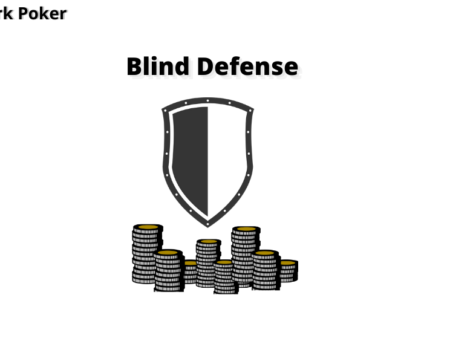

Let’s understand the concept of pot committed in poker with an example. Do not analyse the example as a good or bad play. We are using this example just for the sake of better understanding of being pot committed. You have a stack of $100 and open raise to $35 from the UTG with A♥ K♠ in a $5/$10 6-max game. The button who also has a stack of $100 calls, and the pot is $85.
Flop: A♦ T♦ 8♠
You have a Top Pair Top Kicker and make a 1/2 pot-size bet of $42.5, and your opponent calls. The pot is now $170.
Turn: A♦ T♦ 8♠ 8♦
It is a dangerous board, and you decide to check. Your opponent also checks.
River: A♦ T♦ 8♠ 8♦ 2♦
You check again, but your opponent goes all-in with his remaining stack of $22.5. The pot is now $192.5. You also have a remaining stack of $22.5. Let’s review this situation here.
- You are getting great pot odds.
- The pot ($192.5) is so large in comparison to your stack ($22.5).
- Your chances of winning look really weak as your opponent can beat yout Top Pair Top Kicker with a flush or trips.
- You have already invested so much in the pot that it looks impossible to fold.
If you are faced with this difficulty, you are being pot committed!
What is Pot Committed in Poker?
Being pot committed in poker is a situation where you find it difficult to fold when the pot is so large in comparison to your stack. You have already invested so much in the pot that you can no longer fold if your opponent bets or goes all-in.
In the above example, you have seen that folding to a bet of $22.5 in a pot of $192.5 seems almost impossible, even though you have weak chances of winning the pot. Many players face this situation where they end up calling even when calling is not justified.
You are pot committed in poker when the pot odds for your remaining stack are greater than the chances of winning the hand. In other words, you have invested so much in the pot that it seems really difficult to fold to a bet, even though you are more likely to lose the pot.
Should You be Pot Committed in Poker?
Well, it depends! If you think you have tough odds of winning the hand, it is always better to fold. It is better to save your remaining stack even when calling looks very tempting. Always have a mathematical approach to your game where you should call when the equity is greater than the pot odds. When you have almost no chances of winning or zero equity, it is better to save whatever you have left in your stack. In the above example, your hand A♥ K♠ has no chances of winning on a board A♦ T♦ 8♠ 8♦ 2♦ if your opponent has a flush or trips. So, it is better to save your remaining stack than lose it all. If you are really confident that your opponent is bluffing, you can choose to call.
How to Avoid from Being Pot Committed?
The best way to avoid being pot committed in poker is to not put so much in the pot if you are not confident of your hand. Don’t put more than 1/3 of your stack with hands that you are not prepared to go all-in. If you put 1/3 of your stack in the middle, your opponent can make a pot-size bet or go all-in to put you in a tough spot. For example, if you put $33 out of a stack of $100 and your opponent calls, the pot will be $66. You have $67 left. If your opponent makes a pot-size bet, the total pot will be $132 which will give you 2:1 or 25% pot odds. In order to call, you need to have at least 25% equity in your hand. If you had put 1/3 of your hands with weak hands, you would not have enough equity to justify making your call.
If you don’t know what pot odds are, read this chapter: How to Calculate Pot Odds in Poker?
Conclusion
If you are in a situation where you think you are pot committed, always evaluate your equity and pot odds before deciding to call. Be a mathematical player where you should call when the equity is greater than pot odds. Being pot committed shouldn’t be an excuse to make mathematically bad calls. It is always wise to save whatever you have left than lose it all. Remember, “money saved is money won!”




